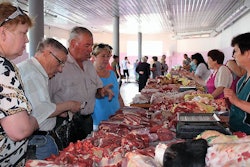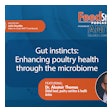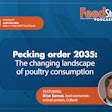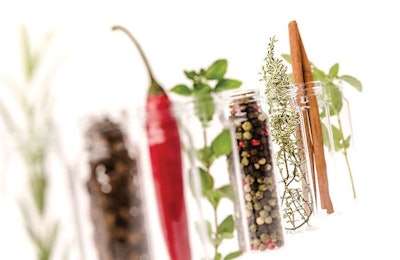
Thailand is the world’s 13th largest compound feed manufacturer, producing more than 19 million metric tons in 2017. Major shifts in Thai poultry, livestock and aquaculture production has increasingly changed how Thai food animals are raised and fed.
Thailand aims to reduce “mean consumption of antimicrobial drugs by livestock and pets” by 30 percent utilizing the OneHealth approach.
With antimicrobial resistance in human health making headlines, Thai consumer awareness and interest in food safety has been on the rise. In response to public demand, two of the country’s largest poultry producers, CP Group and Betagro Group, announced the adoption of advanced antibiotic restrictions, such as the elimination of therapeutic use of medically important antibiotics and no-antibiotics-ever, respectively.
As consumer investment in food production grows, how will consumer awareness trickle down to influence Thai feed formulations?
Interests of Thai millennial “foodies”
Millennials, or the generation born between 1981 and 1996, are marked by their keen use and understanding of technology and related communication channels, i.e. social media. One of the hallmarks of the generation is their interest in global and local food sourcing and quality – specifically related to the environment, animal welfare and natural ingredients.
“Consumers are learning by social media and from the internet,” says Preecha Sapkitjakarn, Delacon country sales manager in Thailand. “There is an increasing awareness on specific parameters when buying meat. If possible, consumers will choose the meat from the farm that doesn’t use any antibiotics.”
In early 2018, phytogenic feed additives supplier Delacon Biotechnik conducted a survey of Thai millennials to determine how their personal food preferences affected their opinions on the types of feed additives food animals were fed.
Of the more than 500 respondents, 33 percent identified themselves as foodies or consumers who care very much about the quality and source of their food.
The survey revealed that the Thai millennial looks closely at product labels and gravitates toward products “raised without antibiotics ever.” In addition, Thai millennial foodies report:
- 91 percent would “choose meat and poultry fed completely natural ingredients, such as phytogenics” (78 percent of millennials overall)
- 92 percent would “feel great about food choices” knowing phytogenics support animal’s digestive health and wellness, as well as reduce environmental impact. (87 percent overall)
- 93 percent would “want to know and choose meat and poultry raised with phytogenics.” (82 percent overall)
Based on these findings, producers can benefit from promoting the natural ingredients their poultry and livestock have been fed.
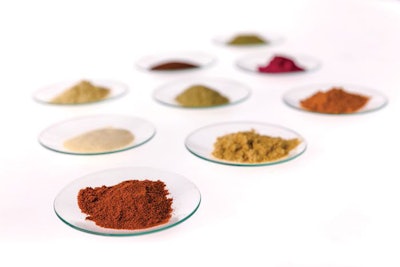
Phytogenics offer Thai millennials a "natural" feed additive solution. | Delacon
Compared with US counterparts
In 2016, Delacon conducted a similar survey of U.S. millennials. The company’s Thai survey revealed similarities between the two millennial groups.
“Foodie” values were found to be consistent across all income levels. However, U.S. millennial foodies were more trusting in the U.S. food system, compared with Thai millennials, who report they look “very closely” at labels. Thai millennials were more interested in product claims ensuring their food was safe from harmful residues, the company reports.
In addition, product claims ranked higher with Thai millennials than Americans specific to “raised without antibiotics ever” (20.5 percent) and “certified organic” (30.3 percent) labels. This finding suggests labels “helps Thai consumers understand how their food was raised.”
While there is little difference between U.S. and Thai millennial foodies regarding the positive impact of having “phytogenics” cited on the label (87 percent U.S.; 82 percent Thailand), Thai foodies report being significantly more likely to choose meat and poultry raised with completely natural ingredients, 59 percent U.S.; 91 percent Thailand.
Thai millennial consumers expressed interest in phytogenics across the board. But in the U.S., millennials generally showed a significant difference in preferences between foodies and non-foodies. Ninety-three percent of foodies and 84 percent of Thai millennials overall would “want to know and choose meat and poultry raised with phytogenics” because it reflects their values.
As legislation banning antibiotic growth promoters in animal production in Thailand has taken effect and consumers become increasingly invested in animal production, the trend for “natural” feed additives is poised to rise.
References available upon request.


